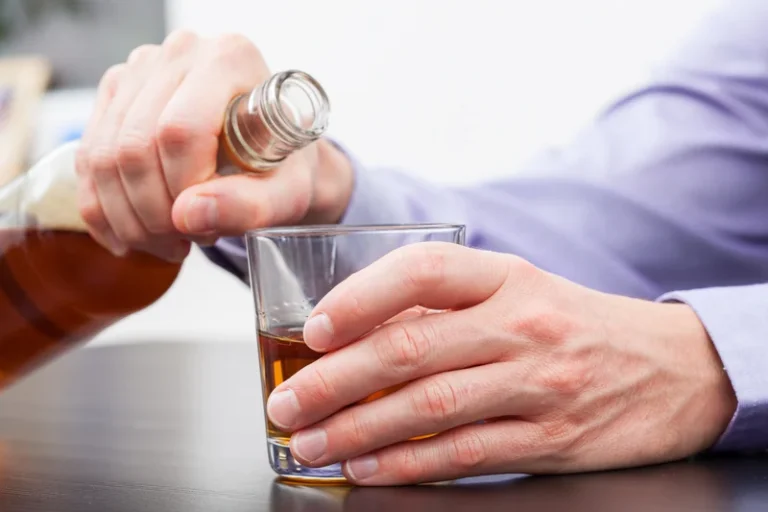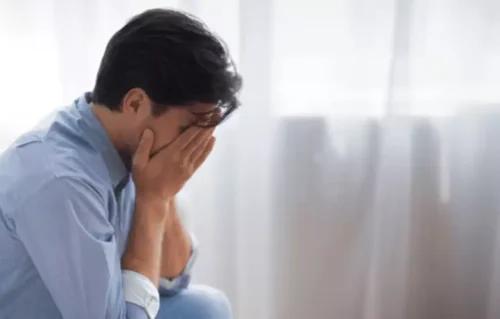
It is estimated that 1 in 10 people in the US has experienced a major depressive episode and only 50% of those individuals decide to seek treatment. Depression and alcohol use are a dangerous combination that is best treated with support from professionals and with support from loved ones. Atypical medications, also referred to as second-generation antipsychotics, have become some of the most prescribed medication to help treat depression.
Medical Professionals
- When he became depressed, he started sleeping through his alarm and showed up late to work.
- You don’t have to battle the depression alone and relying on alcohol to make you feel better will only cause further pain.
- They can also lead to symptoms of anxiety, decreased self-esteem, difficulty sleeping, aggression, and more.
- These research approaches lead to three conclusions, discussed below.
- Specifically, some studies focused on drinking patterns rather than on alcohol dependence or described mood/anxiety symptoms rather than true psychiatric disorders.
Alcohol dependence has been shown to be genetically influenced and to run in families (Schuckit and Smith 1996). The disorder often develops when individuals are in either their twenties or thirties. Similarly, major anxiety disorders usually are apparent before age 30, and although major depressive disorders often have a later onset, they too are frequently observed before age 30. Most clinicians and researchers would agree that alcoholics experience high rates of anxiety and depressive symptoms and that these problems must be addressed early in treatment (Brady and Lydiard 1993). Disagreement also exists about whether longer term independent treatment for depressive or anxiety diagnoses is required for the alcoholic person to achieve a normal level of life functioning. Thus, long-term psychiatric treatment does not appear to be required for alcohol-induced psychiatric conditions to be resolved (Brown and Schuckit 1988; Schuckit and Hesselbrock 1994).
Drinking spikes during COVID
Alcohol and other addictive substances affect the pleasure and reward center of the brain, triggering the release of chemicals that produce joy, euphoria, and a feeling of well-being. Because addictive substances raise the levels of “feel good” chemicals at a rate much higher than would occur naturally, they strongly reinforce the desire to repeat the experience. Treatment often includes an integrated approach to simultaneously address both alcohol use disorder and depression.
Feeling Depressed Versus Major Depressive Disorder

But she still felt that drinking helped — rather than hurt — her mood. Among people with major depressive disorder, the co-occurrence of AUD ranges from 27 to 40 percent over a lifetime, according to the National Institute on Alcohol Abuse and Alcoholism (NIAAA). If you’re worried about drinking or feel it’s affecting your mental health, a lot of help is available. It’s generally not recommended to drink if you’re taking antidepressants. Alcohol can make depression worse and increase the side effects of some antidepressants.
People may turn to alcohol as a way to cope with mood problems, but drinking alcohol can also contribute to symptoms of depression. Alcohol use can also affect how antidepressants work, which can affect depression treatment. For example, a person with frequent episodes of severe depression may turn to drinking to self-medicate. People who frequently drink are more likely to experience episodes of depression, and they may drink more in an attempt to feel better.
HuffPost Personal
This slowing of the CNS is why alcohol may impair your movements, emotions, speech, perceptions, and judgment. If you consume too much alcohol, it can depress your CNS to the point of death. By following safe drinking guidelines, you can help reduce your risk for depression as well as other hangover symptoms. Having an extra drink or two once in a while doesn’t automatically translate to heavy drinking.

Notice changes about how you feel regarding work that you used to take satisfaction in doing, Garcia said. In extreme examples, a person who is exhibiting these behaviors can get in trouble at work and be at risk of losing their job, which can also result in a cycle of shame and guilt, Velez said. How you interact with co-workers at work can help you understand if you are dealing with just a bad day or something deeper. Withdrawing from colleagues and isolating yourself are two common signs of depression, Velez said.
- “An experienced psychiatrist [or another mental health professional] familiar with mood disorders and the effects of alcohol abuse can be instrumental in recommending appropriate medications and monitoring medication efficacy,” says Kennedy.
- A spinal headache is a rare complication of lumbar puncture—an invasive treatment used for back pain diagnostic testing or to administer local anesthesia.
- Talk to your doctor and work out a plan to safely lower your alcohol consumption.
- Similarly, in the absence of clear evidence of a long-term major anxiety disorder that predates the onset of alcoholism or that remains intense after an extended period of abstinence, few indications exist for using medications related to anxiety for alcoholics.
But depression and anxiety sometimes go together – feeling anxious and worrying constantly can make you feel low. The Centers for Disease Control and Prevention has found that 9 out of 10 adult binge drinkers don’t have a severe alcohol use disorder, but that doesn’t mean alcohol https://ecosoberhouse.com/article/anger-and-alcoholism/ isn’t a problem for them. Drinking to cope with depression, no matter if you have an alcohol use disorder, is concerning. Alcohol can produce feelings of euphoria and excitement, making you feel instantly happier and more confident, but those feelings are fleeting.
If you or your loved ones are worried about your alcohol use or think you have alcohol use disorder, talk to your doctor or a mental health specialist about treatment options. People with DSM-IV alcohol dependence are 3.7 times more likely to also have major depressive disorder, and 2.8 times more likely to have dysthymia, in the previous can alcohol make depression worse year. Among people in treatment for DSM-IV AUD, almost 33% met criteria for major depressive disorder in the past year, and 11% met criteria for dysthymia. However, major depressive disorder is the most common co-occurring disorder among people who have AUD, partly because it is among the most common disorders in the general population.
